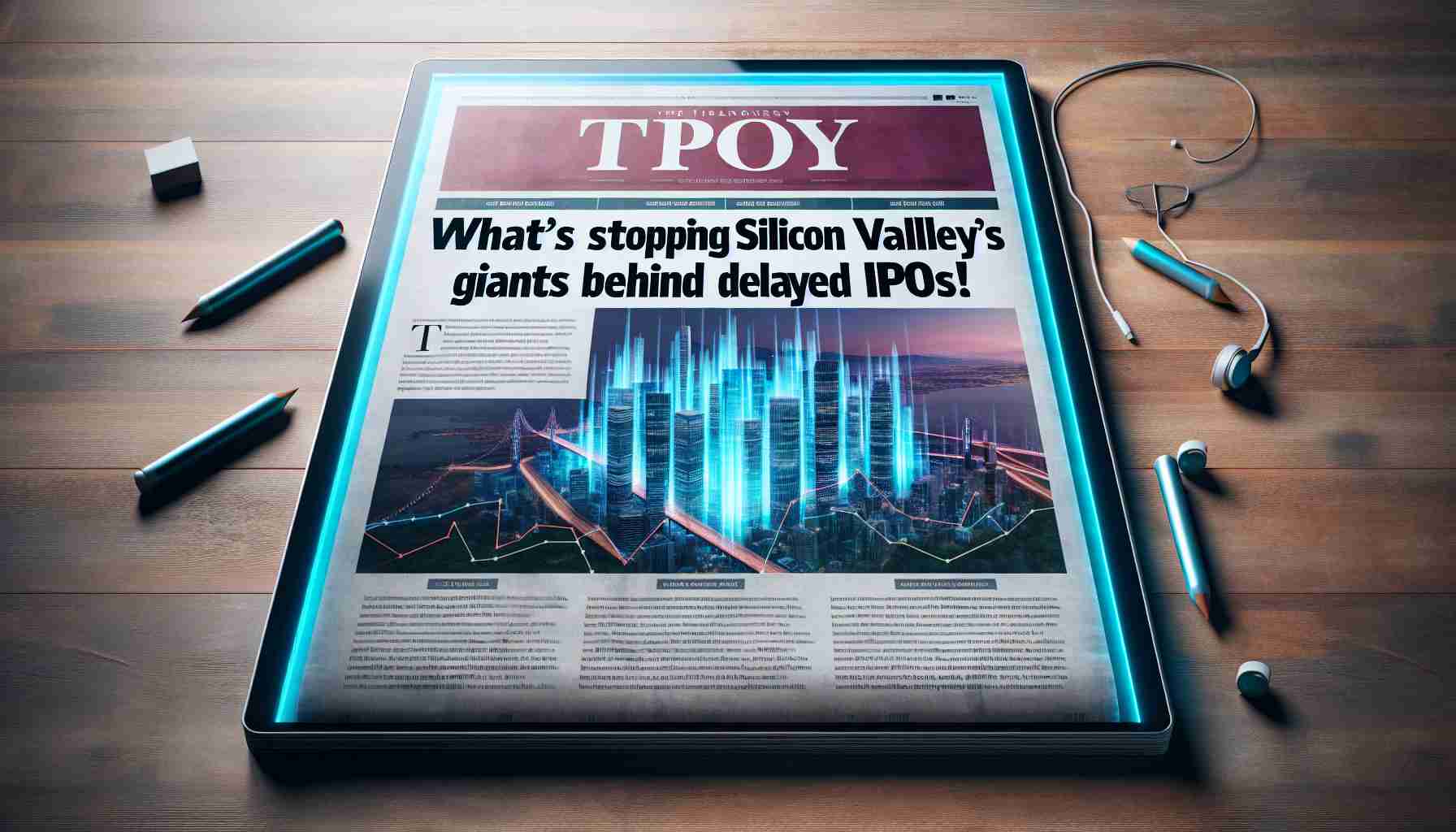Silicon Valley Start-ups Postpone IPOs Amid Massive Funding
A significant trend is emerging in Silicon Valley as some of the top tech start-ups are opting to postpone their initial public offerings (IPOs). Recent analysis reveals that these companies, including notable names like Databricks, SpaceX, and OpenAI, are benefiting from large private funding rounds, which reduce their urgency to seek public capital.
For instance, Databricks recently raised a remarkable $10 billion in December 2024, marking a record for venture capital in that year. SpaceX secured $1.25 billion in November and remains the most highly valued private start-up globally. OpenAI attracted a sizable $6.6 billion in October, showcasing the robust private investment climate.
These substantial funding achievements allow these firms to operate with greater freedom, avoiding the pressures and scrutiny associated with public markets. The CEO of Databricks emphasized their capability to function like a public entity without actually entering the stock market.
Industry experts note that the proliferation of capital available within private markets offers little incentive for these tech titans to go public. Moreover, avoiding public market volatility and activist investor pressures can foster innovation. However, remaining private also carries risks, as past experiences have highlighted potential discrepancies in valuation.
As smaller firms may still explore IPO opportunities in 2025, analysts predict the giants of artificial intelligence and data analytics will continue on their current path of private funding for the foreseeable future.
Why Silicon Valley Start-ups are Dodging IPOs: The Rise of Private Funding
Overview of the Current Landscape
In recent years, a significant shift has occurred within Silicon Valley’s tech ecosystem. Major start-ups like Databricks, SpaceX, and OpenAI are opting to postpone their initial public offerings (IPOs), capitalizing on an abundant landscape of private funding. This trend is reshaping the investment and operational strategies of tech giants, prompting industry experts to analyze broader implications for the market.
The Surge in Private Funding
Recent fundraising efforts underscore the growing trend of start-ups deferring their entrance into public markets. In December 2024, Databricks raised $10 billion, a notable high for venture capital in that year. SpaceX followed suit in November with a substantial $1.25 billion investment, reinforcing its position as the most valuable private start-up globally. OpenAI, harnessing interest in artificial intelligence, secured $6.6 billion in October.
This influx of capital allows these companies to function similarly to public entities while remaining private, thereby sidestepping the regulations and scrutiny that accompany public investments. Databricks’ CEO highlighted this operational freedom, illustrating the competitive advantage that comes with large private funding.
Features and Innovations Driving Growth
The focus on private capital is evolving, driven by several key factors:
1. Increased Valuation Expectations: Start-ups are raising larger sums, reinforcing high valuations that make public offerings seem less attractive.
2. Technological Advancements: As industries become more tech-driven, innovation is paramount. Remaining private allows for a more agile response to market demands without public investor pressure.
3. Venture Capital Culture: A robust venture capital presence provides a safety net, encouraging start-ups to pursue aggressive growth strategies over rapid public entry.
Pros and Cons of Staying Private
Pros:
– Reduced Scrutiny: Avoidance of market pressures allows for greater focus on long-term goals.
– Innovation Focus: Freed from quarterly earnings reports, companies can pursue ambitious projects.
Cons:
– Market Disconnection: Remaining private may lead to misalignments between start-ups’ interests and investor expectations.
– Limited Access to Capital Markets: A future IPO could present challenges if the market conditions worsen by delaying entry into public offerings.
Predictions and Market Analysis
Analysts predict that while some smaller firms may still eye IPO opportunities in 2025, the giants of artificial intelligence and data analytics are likely to continue leveraging private funding sources. With the current rate of venture capital investment, these companies might not feel the need to rush into public markets, which could result in a sustained period of private funding dominance in the tech sector.
Future Trends
As we look ahead, several trends may influence this landscape:
– Increased Regulation: Potential changes in SEC regulations could alter the dynamics of private versus public funding.
– Evolving Investor Expectations: A maturing venture capital environment might adapt to newer models, seeking a balance between private growth and public accountability.
Conclusion
The trend of postponing IPOs in favor of private funding reflects a transformative phase in Silicon Valley. By leveraging extensive private investments, tech start-ups are not only capitalizing on current market opportunities but are also reshaping the future landscape of public offerings and investment strategies.
For further insights into the tech industry and investment trends, visit TechCrunch.
